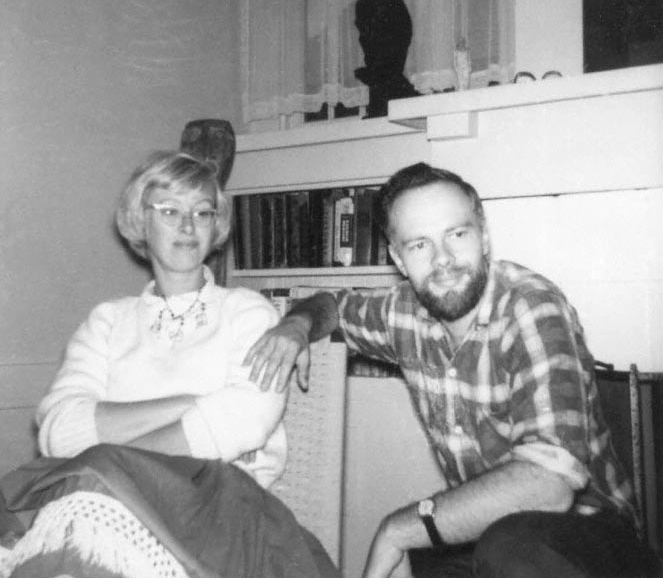
A top science fiction agent, Virginia Kidd, picked Search up. She thought the book was going to be a big success and I would soon be on a lecture tour throughout the country. She sent it to Philip’s editor at Doubleday, the logical place for it to be published, but because of some unfortunate literary politics it didn’t happen. Virginia sent it to all the top houses but Philip wasn’t that well known in the mid-1980’s – we received great rejection letters but it didn’t sell.
The experiences I had with agents over the years were frustrating. They would keep a book for a year or two, saying encouraging things, and then reject it – a huge waste of time. I decided to self-publish my own work starting with some poetry I had written in 2001 and 2002. I sent the poetry off to an excellent poetry teacher for feedback and he had it for so long that I started revising Search for Philip K Dick. The edited poetry came back but by then I was involved with Search and spent the next nine months on this revision. I am very satisfied with the way the self-published book looks and reads.
Here we continue the conversation.
Self-Publishing Review: Why self-publish? You mention in your io9 interview that when you first wrote the book in the eighties, Philip K. Dick wasn’t that well known. But today he’s a giant – it would seem that publishers would be jumping at the opportunity. Did you think you could get as much traction (or profit) putting out the book yourself?
Anne Dick: I did try to get Search published in the usual way. Remember, it’s a reissue. Mellen Press printed this book as a library hard cover in 1993. I own the rights and Mellen didn’t want to do a paper back but all this was too complicated for some agents and publishers. Also I became very tired of waiting for various people to read the book and get back to me. I’m a fast mover and they seemed inordinately slow to me. Perhaps my publishing the book will allow it to be picked up by a mainstream publisher.
SPR: What’s in this revised edition that wasn’t in the edition that came out in the early nineties?
AD: There is new material throughout and the book has been organized differently. Also I’ve been working on other writing projects regularly since I wrote it in 1982 and my skills are better. I was able to improve the flow of the prose (although I didn’t want to change the voice of that Anne Dick back then too much).
SPR: I wonder if publishers didn’t want it because it’s kind of damaging to the Philip K. Dick myth. I have to admit being fairly disillusioned in places. Because his novels are so whimsical one might regard his life in the same way. So you think, ha ha he was so paranoid, or ha ha, he wrote novels on speed – but what comes out in your book was that his lifestyle resulted in a lot of self-abuse and abuse of those close to him. So it’s a pretty startling portrait. Have you come head to head with that sort of disillusionment from fans?
AD: He was a very charming man and tried to help people throughout his life even during his worst periods. He wasn’t egotistical, and although he was a wonderful talker he was a good listener too. His friends in Socal adored him. Perhaps someone that sensitive and delicately balanced was badly affected by medications. I think he wrote because he loved to write and writing was the main thing in his life. People know about Phil’s life from other biographies. However if you read Emmanuel Carrerre’s innovative biography, I’m Alive and You’re Dead, you see that he finally overcame his inner demons.
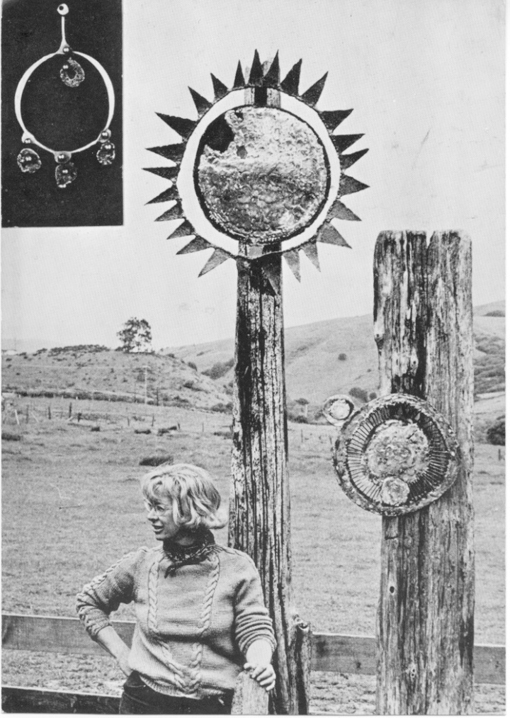
AD: It’s true that some very creative people are driven by inner problems that occurred early in their lives. Does anyone know the formula to be a great writer? Write what speaks to you and let other people decide. I think it’s something inside some people that comes out — if they have the skill to express it.
He started taking simoxdrine around the time he and Kleo married and her father, a respectable Greek American doctor, gave him a prescription for this. Perhaps this amphetemine was for his agoraphobia. He was still taking it off and on when I was married to him. At the time I wasn’t aware that it was an amphetemine and generally, society, had little awareness of amphetemines. I might not have even known the word. There was a fashion among writers in those days to take stimulants for writer’s block. Recall, I came from a Christian Science background, never took any medications, and had little or no awareness of any of this at the time.
I don’t think Phil needed to take anything to write. He wasn’t taking simoxidrine all the time. He was very a very fast thinking, fast moving person and loved his writing. He had a strong work ethic and a strong drive. Some of his later problems were probably due to extreme guilt about some of the problems in our relationship and about the breakup.
I think he was born with a powerful, intricate imagination, his most interesting quality. I don’t really think he was over the edge. He was a fiction writer and gave different accounts about his life to whoever he was speaking to at the moment. Also he liked to dramatize.
SPR: How do you like “Minority Report” and the other films of his work, and to an extent the “Matrix” movies? You paint a picture of someone who both fed on his fame and the money made him uncomfortable. Personally, I think the movies are a bit too overserious and lack his writing’s sense of humor. “A Scanner Darkly” seems to catch the spirit a bit more – what do you think, and what would he think (if you can answer that)?
AD: Many Phil Dick fans liked “Scanner Darkly” the best of all the movies except perhaps “Blade Runner.” At that time I knew too much about his life then to be able to enjoy it. I think Phil would have liked it. I don’t think “Minority Report” was one of Philip’s great stories in the first place. The movie was entertaining. I liked it all right. It didn’t come up to “Blade Runner.” It wasn’t really Dickian. I saw the first “Matrix” movie, and some of the ideas in it did seem to relate to PKD’s writing. I don’t think he fed on his fame. You’re right – the movies didn’t catch his sense of humor.
SPR: What would his opinion be of self-publishing? Not how it was in the sixties and seventies, because I could imagine him never wanting to go down the route of self-publishing some of his unpublished literary fiction – though I have a posthumous copy of Puttering About in a Small Land that looks like it was self-published. But how about what self-publishing is today? And for that matter, what would he think of the internet and how might he use it?
AD: I think he would have loved the internet, loved using it and loved writing about it. I don’t think he would have been interested in self publishing back then although today – who knows.
.
SPR: We’ve interviewed Tessa Dick here – his last wife. Have you read her book Remembering Firebright – her memoir, or The Owl in Daylight, her continuation of the Valis novels? I know there’s some legal wrangling going on in regards to the latter, and you had the blessing of the PK Dick trust and had access to his papers to write Search.
AD: I haven’t had a chance to read Tessa’s books yet. I had access to the papers of the estate when Paul Williams was the literary executor back in the early 1980’s. I know hardly anything about the estate’s business. My daughter, Laura, and I have a great relationship but we don’t talk about this.
SPR: In the io9 interview, you mention other writing – science fiction novels, a literary novel. Are you going to self-publish this work on Point Reyes Cypress Press?
AD: Marketing and distribution are so much work and take time I’d rather to use to write. It’s a conundrum. I don’t know what I will do next. When the time comes, the answer will come.
SPR: Thanks, Anne. Good luck with everything.
Get an Editorial Review | Get Amazon Sales & Reviews | Get Edited | Get Beta Readers | Enter the SPR Book Awards | Other Marketing Services

















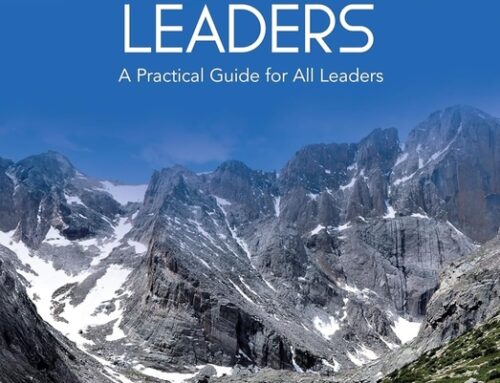
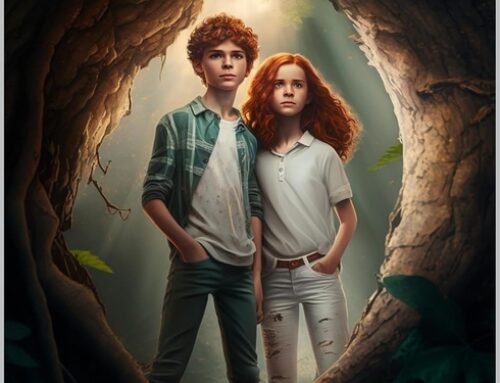


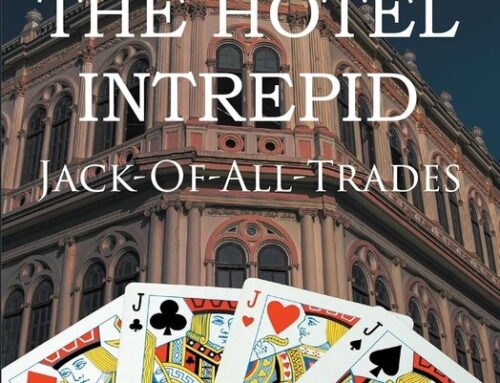
Interesting interview!